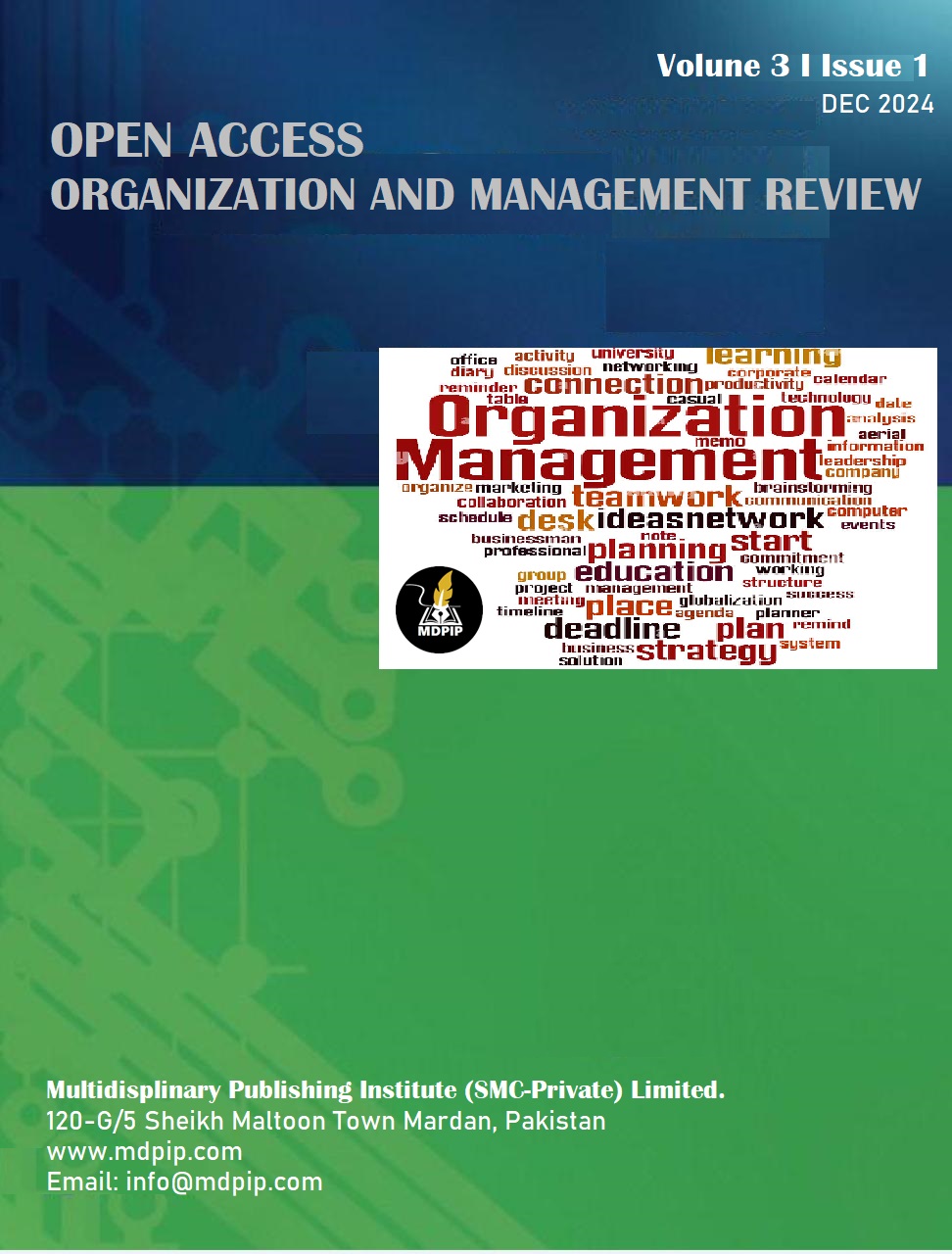The Dark Side of Success: Impostor Phenomenon as a Predictor of Self-Sabotaging Behavior and Workaholism
DOI:
https://doi.org/10.59644/oagmr.3(1).108Keywords:
Dark side of Success, Impostor Phenomenon, Self- Sabotaging Behavior, Workaholism, Mental HealthAbstract
Imposter phenomenon (IP) is a specific type of behavioral health phenomenon and can be defined as individuals, most frequently high achieving, who are marked by an inability to internalize their accomplishments and attribute their successes to external factors either luck or misperceiving others' scrutiny of their work. The purpose of this study is to examine the relationships between the impostor phenomenon (IP), self-sabotage, and Workaholism among faculty working in HEIs. A survey design was employed, using data from 290 sample faculty drawn from two universities. A structured questionnaire was used. We investigated associations between perceptions of IP and maladaptive behaviors with both correlation and regression analyses. Results indicate a robust positive association between the impostor phenomenon and both self-sabotage tendencies and workaholic behavior, with IP being the significant predictor for all. We found that faculty members who felt like impostors procrastinated, over-prepared, and put in extra hours they did not need to log because they did not trust their competence. Through Control-Mastery Theory (CMT) and Social Comparison Theory, this research sheds light on the unconscious motives and social comparisons behind these behaviors. Results underscore the need for intervention at both the individual and institutional levels to support faculty well-being. It also offered implications for professionals and mental health practitioners.






